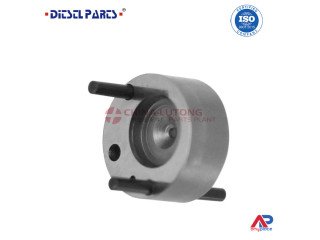Laboratory centrifuge
2022-06-24 12:22 Automobiles Sahāranpur 396 views Reference: 1178Location: Sahāranpur
Price: Contact us
A centrifuge is a device that uses centrifugal force to separate various components of a fluid. This is achieved by spinning the fluid at high speed within a container, thereby separating fluids of different densities (e.g. cream from milk) or liquids from solids. It works by causing denser substances and particles to move outward in the radial direction. At the same time, objects that are less dense are displaced and move to the centre. In a laboratory centrifuge that uses sample tubes, the radial acceleration causes denser particles to settle to the bottom of the tube, while low-density substances rise to the top. A centrifuge can be a very effective filter that separates contaminants from the main body of fluid. Industrial scale centrifuges are commonly used in manufacturing and waste processing to sediment suspended solids, or to separate immiscible liquids. An example is the cream separator found in dairies. Very high speed centrifuges and ultracentrifuges able to provide very high accelerations can separate fine particles down to the nano-scale, and molecules of different masses. Large centrifuges are used to simulate high gravity or acceleration environments (for example, high-G training for test pilots). Medium-sized centrifuges are used in washing machines and at some swimming pools to draw water out of fabrics. Gas centrifuges are used for isotope separation, such as to enrich nuclear fuel for fissile isotopes.
The floor centrifuge has the advantages of beautiful appearance, large capacity, small volume and complete functions. It has the advantages of stable performance, adjustable speed, automatic balance adjustment, low temperature rise, high efficiency and wide applicability. The product is suitable for qualitative analysis of serum, plasma and urea in pharmaceutical products, blood stations, clinical trials and biochemical laboratories. Its principle is to separate and concentrate particles in suspension with different physical properties (such as mass, buoyancy, sedimentation coefficient, etc.) by using strong centrifugal force. It is brushless maintenance free DC motor or AC variable frequency drive. The refrigeratied centrifuge is cooled and temperature controlled by the compressor. The centrifugal precipitation of cells and biological macromolecules is realized by setting the centrifugal rate, centrifugal force, time and temperature. The floor centrifuge adopts brushless motor, module control and stepless speed regulation, which has the advantages of safety, reliability and durability. It is a fast separation equipment selected for biochemical experiments in medical, health, agriculture, forestry and animal husbandry, food, petroleum and other industries.
A laboratory centrifuge is a piece of laboratory equipment, driven by a motor, which spins liquid samples at high speed. It is mainly used in the field of experimental solid-liquid separation, and can also deal with small batch of non experimental solid-liquid separation operations. It uses the centrifugal force generated by the rotating head to separate the substances with different particle sizes and densities in the emulsion or suspension. Laboratory centrifuges are widely used in pharmaceutical, environmental protection, chemical, food, mining, teaching and other laboratories.














